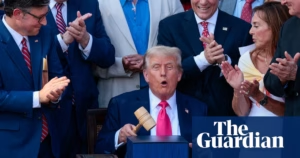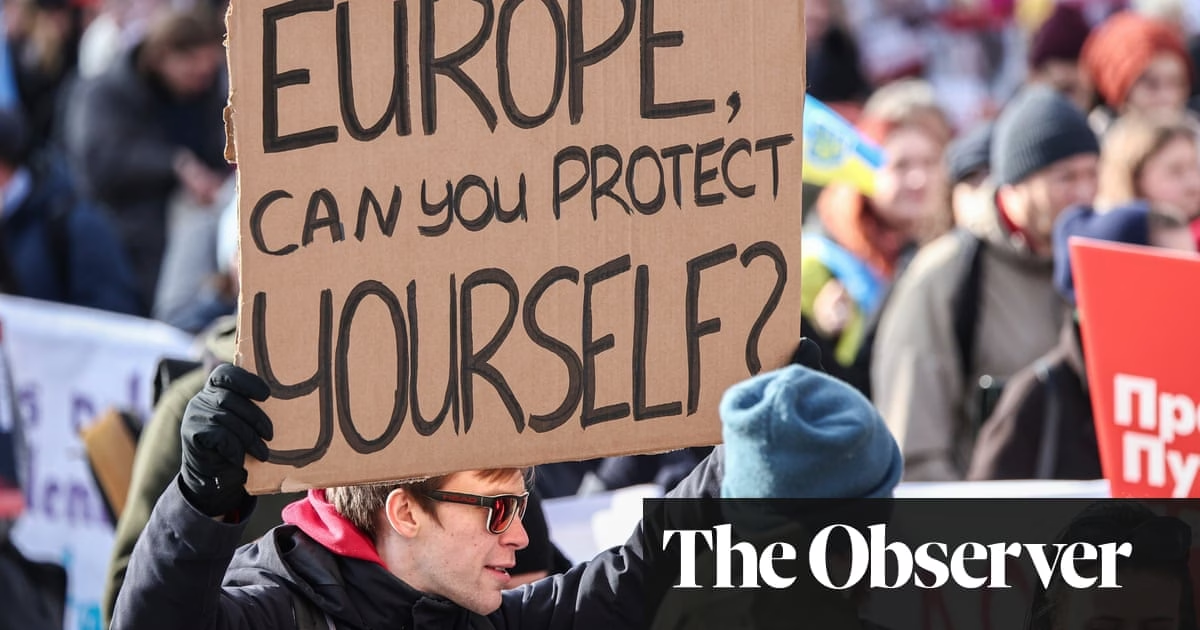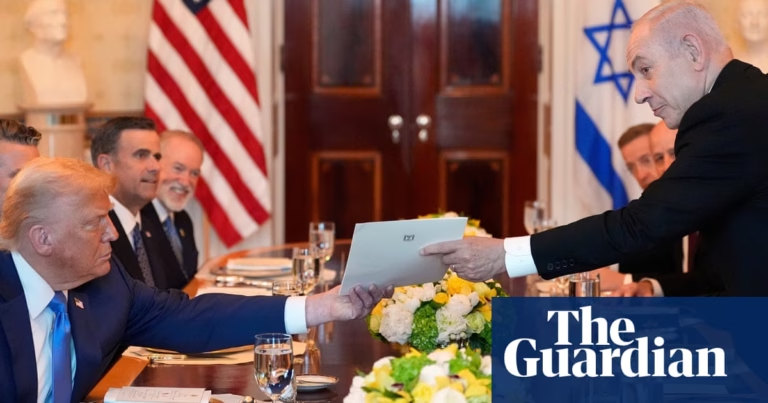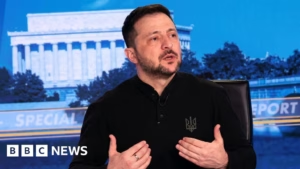The exhaustion and humiliation of lacking control are palpable, as demonstrated by the constant monitoring of meetings in the Oval Office for signs of Trump’s approval or displeasure. Our security is left vulnerable, relying on a perceived slight or a shift in mood.
The recent series of meetings between Trump, Macron, Starmer, and eventually Zelenskyy, were akin to navigating a minefield. Some may question whether Zelenskyy could have handled things differently, but that is the wrong inquiry. The real issue lies in our continued reliance on every meeting held at the White House. Until we take charge of our own destiny, we will remain perpetually on edge, fearing imminent doom with every heartbeat.
Here are potential solutions to this predicament.
Firstly, Europe must present a unified front. While Britain might benefit from maintaining its separate channels to avoid the forthcoming EU-US trade war, our most vital relationship remains with our closest neighbors.
Secondly, if we want to be taken seriously, we must bring substantial financial resources to the table. For instance, there is approximately $300bn worth of frozen Russian assets in Euroclear, Brussels. These could be used to negotiate with America and other weapon providers, turning actual deals into reality rather than relying on frustrating meetings driven by mood swings.
However, it’s important to clarify what we need from America. For the foreseeable future, Europe will remain dependent on the US for artillery supplies and technology upgrades to Patriot missiles and other essential equipment.
The only real security guarantees lie in having armed forces capable of defense. Thus, a European defense industry must be established. This may sound grandiose but is achievable. We should take inspiration from Franklin Delano Roosevelt, who revitalized American arms production in the 1930s to outmatch Germany’s. We must not be fooled by any potential pauses in the fighting that Putin might use to influence Trump. Russia is continuously expanding its military capabilities, preparing for decades of conflicts. Fortunately, there is already one formidable army in Europe: Ukraine’s.
Disrupting Russia’s military supply chains is another crucial step. This involves not only sanctions but also digital disruption, sabotage, and the use of all available secret service tactics.
Learning how to combat hybrid and information wars is also imperative. We know that Russia is relentlessly waging covert disinformation and overt propaganda campaigns, alongside cyber-attacks, corruption, and espionage across Europe. These efforts are set to intensify. All the assets Russia has used to undermine America will now be redirected to attack Europe, particularly the UK.
A “democracy shield” is being discussed in Brussels, but we will also need a sword. From countries like Moldova, we can learn the art of fighting non-democratic adversaries with democratic tools. The British, too, have a history of excelling in such endeavors, as seen in the Political Warfare Executive of the Second World War, which united the most ingenious minds from the arts with spies and soldiers to create a highly effective communications force superior to that of the Nazis.
Once we demonstrate our resolve and willingness to take these steps, we can negotiate on different terms. We can then discuss “mutual interests” as equals, not as supplicants.
Most importantly, we will no longer feel as if our fate is being dictated by others. The Brexit campaign was predicated on the notion of “taking back control,” a promise that turned out to be hollow. However, the sentiments it evoked were genuine. In a tumultuous world, people feel vulnerable. Now, we have the opportunity to genuinely reclaim control.
Source: https://www.theguardian.com/world/2025/mar/01/how-do-we-make-europe-more-secure-here-are-five-steps-we-need-to-take-now









